Sri Lanka is a tropical island nation in the Indian Ocean, just off the coast of the Indian sub-continent. Shaped like a tear-drop, Sri Lanka is most famous amongst visitors for its sandy, palm-fringed beaches; colonial architecture; its mountainous core with lush forests and picturesque tea plantations; and its many fascinating Buddhist temples. In this sense, Sri Lanka holidays offer an appealing mix of sun, sea and culture. Whilst the sun-worshippers stick to the coast, the culture seekers often head into the hills of central Sri Lanka where many of the island’s famous temples can be found. If you have your own set of wheels, I suggest doing the Three Temples Loop, which takes visitors to some of central Sri Lanka’s lesser-explored temples and places of interest. This loop can easily be done as a day trip from Kandy.

Temple of the Tooth
Base yourself in Kandy (map), Sri Lanka’s second largest city and one of the most culturally significant locations on the island. It is home to the world-famous Temple of the Tooth, in which the renowned Tooth Relic of Lord Buddha resides.
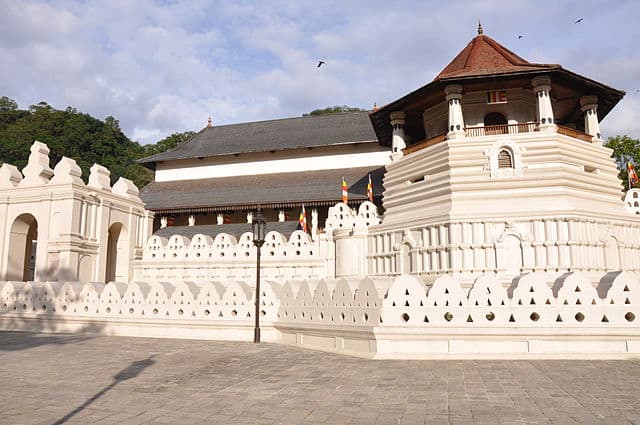
The temple attracts visitors from all across the globe; unsurprisingly, it’s often busy and ticket prices are high. In the surrounding hills, however, lie several Kandyan-era temples worth exploring, three in particular which date back to the fourteenth-century, commonly referred to as the ‘Three Temples Loop’.
The Three Temples Loop
Embekke Devale
From Kandy, first head to Embekke Devale: this can be easily reached from the main Kandy – Gampola road (A5). At Geli-Oya, about ten kilometres from Kandy, make a right turn towards Embekke village. The temple itself is well signposted from Embekke and under a kilometre away. The most notable aspect of the temple is its digge (or ‘drummers’ pavilion’), the pillars of which are adorned with delicate carvings of Bodhisattvas, Kataragama’s peacocks and Kandyan dancers (to name just a few of the myriad designs), all of which are in miraculous condition considering their age.
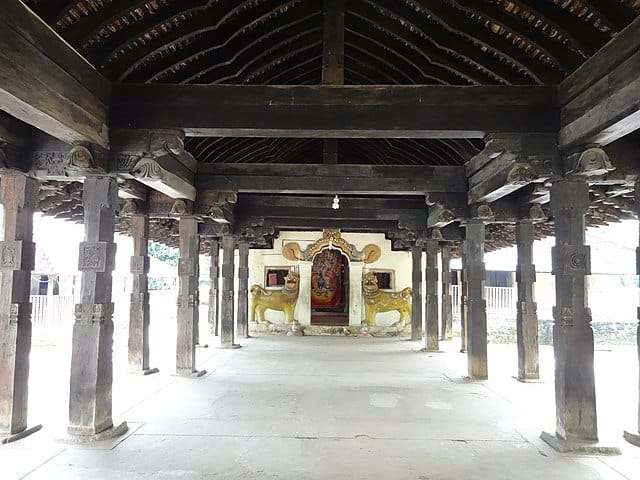
Lankatilake
Next, follow signs from Embekke to the nearby temple at Lankatilake. With its lengthy set of rock-cut steps and striking position – perched upon a picturesque rock outcrop, surrounded by tea-plantations, paddy-fields and hills – its location is as crucial to it beauty as the building itself. It’s unique among Kandyan-era temples due to its architectural style, which strays away from the customary resplendent wooden temples towards a much simpler stone design. Its most outstanding and memorable features are its unusual light blue colour and the eighteenth-century paintings that can be viewed within its main shrine.
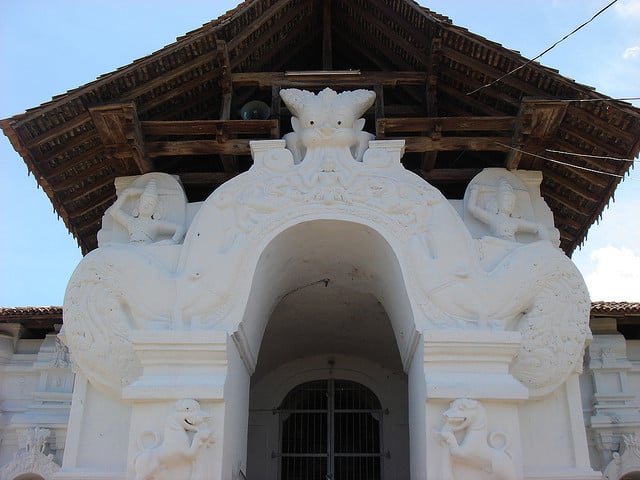
Gadaladeniya
The last of the three temples is Gadaladeniya, around three kilometres from Lankatilake and situated near the main Colombo-Kandy road (A1), making it relatively easy to find. As with Lankatilake, the temple is built on a rock outcrop and dates back to the same year: 1344. It boasts a strong South-Indian influence and numerous decorative carvings to rival some of the subcontinents finest.
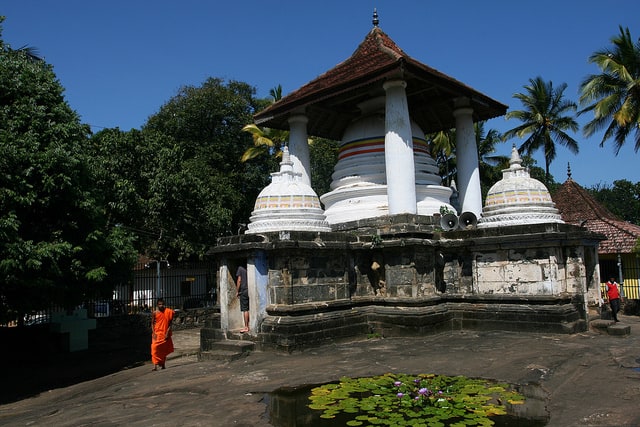
For the most part, these temples remain tourist-free; you’re more likely to find yourself amid day-tripping locals, especially on poya or other public holidays. They’re accessible to the degree that you’ll be able to find your own way between them without difficulty – although, if necessary, you can always ask a friendly villager for a tip in the right direction.

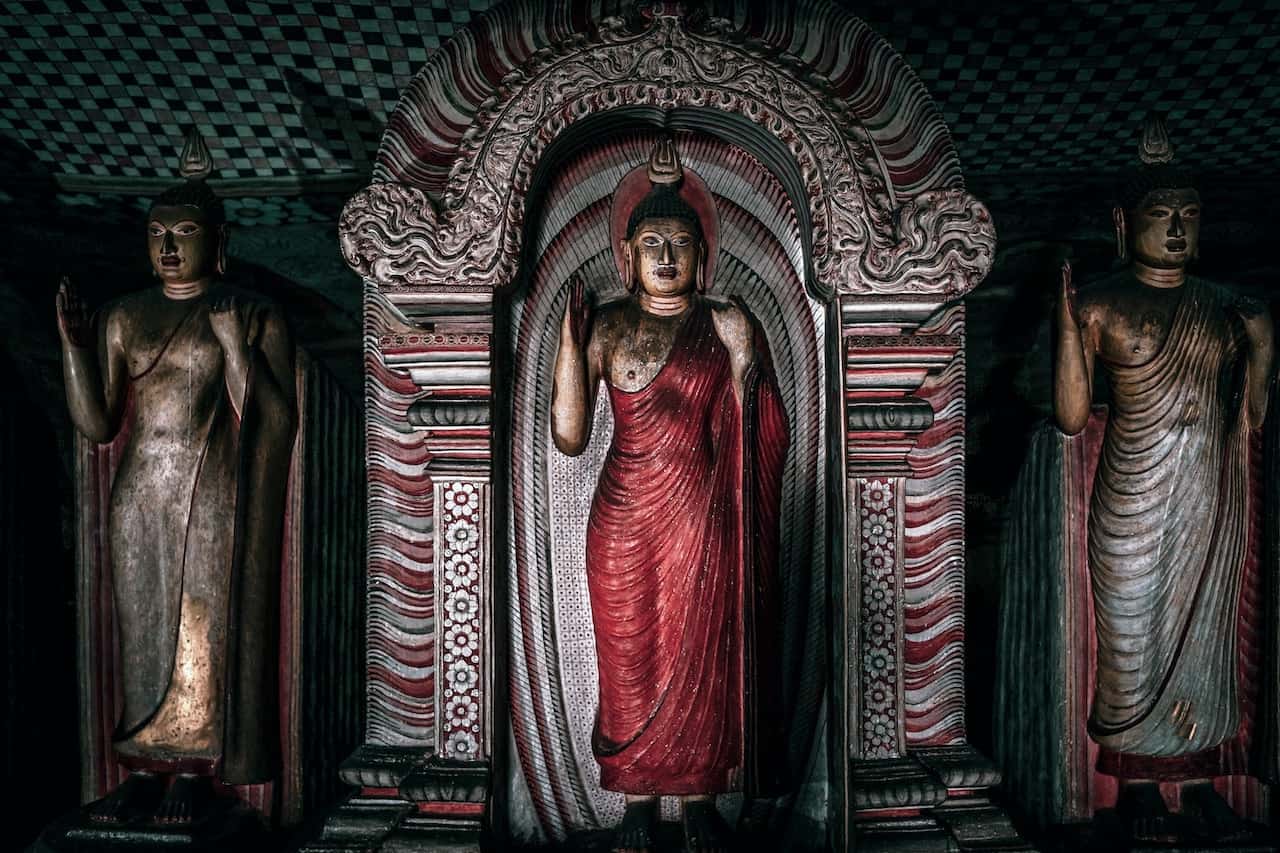
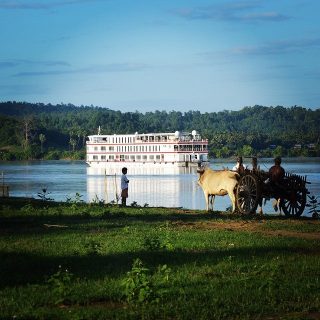
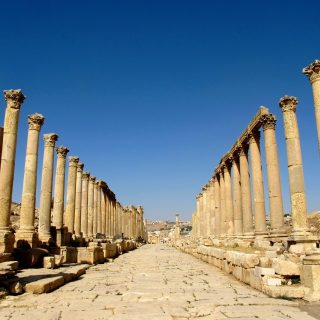
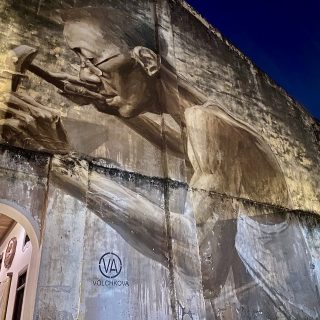
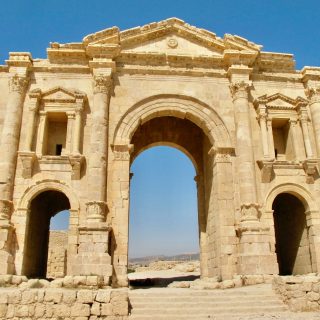






Thanks Drew! 🙂
Just got back from Sri Lanka and Kandy was my favorite place!! The Temple of the Tooth was magnificent. Loving your articles man!
Drew
Hahaha, that sounds gross Jack! 🙂
Been to Kandy a couple of times – great place. One time we stayed in a ‘quirky’ hotel that had a barman with long twisting nails that would have made it into the Guinness Book of Records… took him forever to mix an arrack and sprite 🙂
It’s my favourite country… so far.
Hard to believe that these temples remain tourist free. They are amazing! Thanks for the afternoon jaunt to Sri Lanka!!!